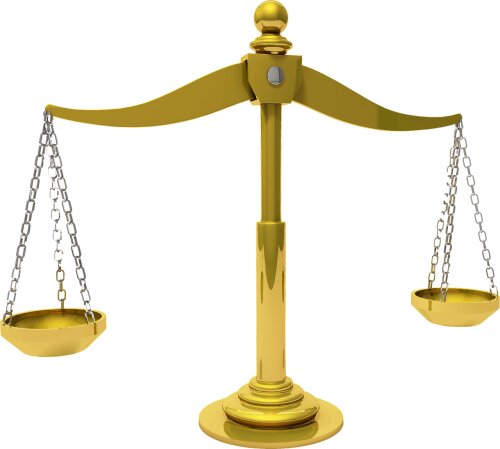Best Defamation Lawyers in Mthatha
Share your needs with us, get contacted by law firms.
Free. Takes 2 min.
List of the best lawyers in Mthatha, South Africa
South Africa Defamation Legal Questions answered by Lawyers
Browse our 1 legal question about Defamation in South Africa and read the lawyer answers, or ask your own questions for free.
- I want to sue someone for defamation and harassment
- Someone posted me on social media, without my consent and started spreading rumours about me. How should i handle this?
-
Lawyer answer by OPRICHTER Legal Network
Collect all available evidence, including chat conversations, voice recordings, and any other supporting materials. After that, you may file a report with the police.
Read full answer
About Defamation Law in Mthatha, South Africa
Defamation in Mthatha, as in the rest of South Africa, is governed by a combination of common law principles and statutory provisions. It involves the unlawful and intentional publication of a statement that injures another person's reputation. Mthatha, being a part of South Africa, follows the broader legal framework established at the national level. Defamation can occur in many forms, including written (libel) and spoken (slander), and the legal system provides avenues for affected individuals to seek redress and compensation.
Why You May Need a Lawyer
Legal assistance may be required in several situations involving defamation:
- If you believe someone has made false statements about you, causing reputational harm.
- When engaging in public discourse, and you want to ensure your statements do not inadvertently lead to defamation claims.
- If someone has accused you of defamation, and you need to protect yourself legally.
- For businesses, managing reputational risks associated with online and offline statements.
- To understand the implications of defamation law on social media interactions.
Local Laws Overview
In South Africa, defamation is primarily regulated by the common law, emphasizing the protection of one's reputation against untrue statements. In Mthatha, the same principles apply as elsewhere in the country:
- Truth: A statement is not defamatory if it is true.
- Public Interest: Publications concerning public interest may be exempt.
- Absolute Privilege: Certain contexts, like parliamentary proceedings, are protected.
- Qualified Privilege: This applies in situations where statements are made without malice.
- Fair Comment: Honest opinions on matters of public interest can be defenses if not made maliciously.
Frequently Asked Questions
What is defamation?
Defamation is the act of making false statements about a person or entity, causing damage to their reputation.
How is defamation proven?
To prove defamation, one must demonstrate that a false statement was made public, causing reputational harm.
What are the defenses against defamation?
Common defenses include truth, fair comment, privilege, and consent.
Is defamation a criminal offense in South Africa?
Defamation is generally a civil matter, but in certain circumstances, it may result in criminal charges.
Can I sue for defamation on social media?
Yes, statements made on social media can be grounds for defamation if they harm your reputation.
What constitutes a defamatory statement?
A statement is defamatory if it unjustly harms the reputation of an individual or entity.
What is the time limit for filing a defamation lawsuit?
The typical time limit is three years from the date of publication of the defamatory statement.
Can companies be defamed?
Yes, companies can claim defamation if false statements impact their reputation and business interests.
What damages can be claimed for defamation?
Damages may include compensation for financial loss, reputational harm, and in some cases, punitive damages.
Do I need to prove financial loss in a defamation case?
Not necessarily. The key element is harm to reputation, regardless of financial impact.
Additional Resources
Here are some resources that might be helpful if you're dealing with a defamation issue:
- The Department of Justice and Constitutional Development for legal frameworks.
- The South African Law Reform Commission for research and policy advice.
- Legal Aid South Africa provides affordable legal help for those who qualify.
- Local law societies and bar associations for lawyer referrals.
Next Steps
If you believe you are involved in a defamation situation, either as a victim or alleged defamer, consider these steps:
- Consult with a legal professional specializing in defamation to understand your rights and options.
- Collect evidence, including statements, publications, and any communications relevant to the alleged defamation.
- Consider alternative dispute resolution methods, like mediation, to possibly resolve the issue outside of court.
- If necessary, proceed with legal action through the courts to seek defamation redress.
Lawzana helps you find the best lawyers and law firms in Mthatha through a curated and pre-screened list of qualified legal professionals. Our platform offers rankings and detailed profiles of attorneys and law firms, allowing you to compare based on practice areas, including Defamation, experience, and client feedback.
Each profile includes a description of the firm's areas of practice, client reviews, team members and partners, year of establishment, spoken languages, office locations, contact information, social media presence, and any published articles or resources. Most firms on our platform speak English and are experienced in both local and international legal matters.
Get a quote from top-rated law firms in Mthatha, South Africa — quickly, securely, and without unnecessary hassle.
Disclaimer:
The information provided on this page is for general informational purposes only and does not constitute legal advice. While we strive to ensure the accuracy and relevance of the content, legal information may change over time, and interpretations of the law can vary. You should always consult with a qualified legal professional for advice specific to your situation.
We disclaim all liability for actions taken or not taken based on the content of this page. If you believe any information is incorrect or outdated, please contact us, and we will review and update it where appropriate.








